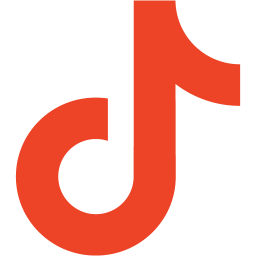What Stops Top-Tier Talent from Using HR Portals? Insights from our LinkedIn Poll
Posted on January 29, 2025

What’s Stopping Top-Tier Talent? Breaking Down Barriers within HR Portals
Attracting and engaging top-tier talent is one of the most pressing concerns for hiring managers and recruiters today. Yet, according to a recent LinkedIn poll, significant barriers prevent top-level candidates from actively using HR portals to explore new opportunities. Understanding these challenges is not just a matter of convenience, it’s critical for refining recruitment strategies and increasing access to qualified talent.
The poll revealed the following top reasons why elite professionals avoid HR portals:
- Confidentiality Concerns (45%)
- No time to update/prep resumes (27%)
- Fear of their network finding out (18%)
- Other (9%)
These insights shed light on key pain points that, if addressed, can bridge the gap between your organization and the talent it needs. Below, we’ll break down each factor in more detail and explore actionable solutions.
1. Confidentiality Concerns Are the Top Barrier (45%)
It’s no surprise that nearly half of respondents find confidentiality a hurdle. Top-tier professionals often hold senior positions and are well-established within their industries. For them, any interest in a new role must remain discreet to avoid jeopardizing their current employment or reputation.
What can you do to address this?
- Implement Privacy-First Features: Offer candidates options to conceal their activity, like anonymous resume visibility or “stealth” browsing features. This makes them feel secure when engaging with your portal.
- Highlight Discretion in Communications: Clearly emphasize your commitment to confidentiality in job postings and communications. Transparency about your privacy measures can build trust.
- Leverage One-on-One Recruiter Connections: For high-ranking professionals, sometimes it’s better to bypass portals altogether. Outreach through trusted executive recruiters can help initiate discreet conversations.
2. Lack of Time for Resume Prep (27%)
A significant portion of high-performing talent feels constrained by time. Crafting resumes and updating profiles often take a backseat to their demanding schedules. For these individuals, jumping through multiple hoops just to explore a new opportunity feels like a non-starter.
Simplify their process:
- Focus on Contextual Applications: Consider a process that allows candidates to submit LinkedIn profiles or portfolios in place of traditional resumes.
- Offer Support Tools: Build-in features that automatically parse information from LinkedIn or professional pages into resume formats, saving candidates valuable time.
- Streamline Communication: Make it clear that you value time efficiency by providing clear instructions and a fast-tracked application process for senior applicants.
3. Fear of Their Network Finding Out (18%)
An active job search may subtly signal dissatisfaction within one’s current role, something highly visible professionals may want to avoid. Even engaging with HR portals can feel risky with the chance of peers, colleagues, or supervisors discovering their activity.
Solutions for maintaining a low profile:
- Offer Incognito Job Search Features: Invest in systems that allow candidates to keep their search entirely private. Reduce features such as “recently viewed postings” appearing publicly.
- Prioritize Trusted Platforms: Partner directly with secure platforms or tools geared towards executives and senior hires, reassuring candidates that their search won’t inadvertently go public.
- Be Discreet with Outreach: Keep recruitment communications personalized and avoid mass messaging tactics that draw attention.
4. “Other” Barriers (9%)
The final category, representing 9% of respondents, was marked as “Other” without further clarification in the poll comments. However, this category likely encompasses several additional concerns that may be specific to individual preferences or niche challenges. These could include:
- Lack of User-Friendly Interfaces: If an HR portal is difficult to navigate or outdated, candidates may quickly lose interest.
- Unclear Job Descriptions: Vague or poorly written job postings can discourage top-tier talent from applying.
- Limited Opportunities Matching Skillsets: Highly skilled professionals may feel that HR portals do not adequately cater to their specific expertise or career goals.
- Concerns About AI Filtering: Some candidates worry that applicant tracking systems may unfairly reject their resumes, leading them to avoid portals altogether.
Addressing these potential “other” barriers requires an ongoing commitment to optimizing your platform and tailoring it to meet diverse candidate needs.
Moving Forward—Refining Talent Acquisition for Top-Tier Professionals
Each of these barriers presents an opportunity for hiring managers and recruiters to refine their strategies for engaging in top-level talent. By addressing confidentiality concerns, removing unnecessary time barriers, and ensuring candidates feel secure during their search, companies can create an environment that appeals to elite professionals.
To improve your recruitment strategy further, ask yourself these key questions:
- Does your platform empower candidates with privacy and security?
- Are you meeting candidates where they are, with minimal friction in the application process?
- How are you creating trust and discretion in every communication?
Refining your recruitment strategy to meet these needs not only improves your candidate experience but also strengthens your ability to attract the best talent in a competitive hiring environment.
Want to Learn More?
If you’re looking for actionable advice on optimizing your talent acquisition strategy, our team of experts at SnapDragon Associates can help streamline your hiring processes while reducing barriers for top-tier talent. Schedule a conversation today!





